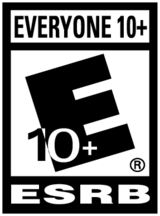In the 16 bit era, 2D platform games were often critical darlings and player favorites. I personally recall Super Mario World and Super Metroid with particular nostalgia. More recently, New Super Mario Bros., Little Big Planet and Limbo have breathed new life into the genre, and platformers are increasingly finding a home as downloadable games on XBLA or PSN. So when I had the chance to take a look at Might and Delight’s new platformer Pid, I was hopeful that it would rekindle the magic of the SNES era platform game and continue to push the envelope in terms of innovation. Read on to see what I thought.
Pid weaves a yarn about a young boy who becomes stranded far from home, and uncovers an evil conspiracy while attempting to make his way home. The friendly inhabitants of Pid’s world appear to be quite oppressed, but provide some direction during the journey. The story itself provides a pretty thin thread tying events together and isn’t particularly compelling. Even though it didn’t have me on the edge of my seat, the tale is passable for a game of this nature.
The best way I can think of to describe Pid is that it feels like a huge expansion from Little Big Planet. Everything from the gameplay to the aesthetic lives in that same wheelhouse. Of course, the game includes a good amount of traditional platforming – running and jumping onto platforms above various obstacles. The more interesting mechanic is the gravity based puzzle solving. Early on in the game, ‘glowing balls of light’ attach themselves to your hands. When thrown on most surfaces, a light beam appears that changes the direction of gravity. In addition to floating the player up and away from danger, the ability is useful for other things like avoiding traps and searchlights and defeating enemies. Other powers make their appearance over the course of the journey such as a super high jump and the good old-fashioned bomb. On the defensive side of the coin, things are much more limited. At times you’ll pick up armor that protects you from a single hit, but more often than not you’ll be vulnerable. Also, don’t expect much from the armor – you’ll be vulnerable almost immediately after getting hit the first time, so things like spikes will thwart you regardless of armor.
The most successful sequences of Pid involve the simpler mechanics. Making it across a series of disappearing platforms for example – it just feels good. Other times the difficulty spikes to a frustrating level. In many cases, I knew exactly what I was supposed to do, but was foiled ad infinitum by pure chance. I can appreciate a game that is designed to be challenging (which Pid clearly is), but it can become tiring when luck plays such a big role. This is never truer than in the massive scale boss battles, which score points for creativity, but quickly lose their lustre. For one thing, boss health bars are excessively long. By and large, you just keep repeating a pattern to score additional hits, and random projectiles wipe you out more often than not before the boss is toast. In more general terms, combat is not particularly satisfying, especially compared to the best parts of the platforming aspect. In many cases defeating enemies is indirect – using gravity to float one into a wall of spikes for example. In a genre where stomping a Koopa is so well known and is so pleasing, I can’t help but feel a little disappointed in the combat.
In short, the control feels floaty. In fact it feels very similar to Little Big Planet, where there is some fine control, but the reduced gravity can be troublesome. It contributes to the difficulty of the game in some ways, since it is all but impossible to avoid some projectiles (especially in boss fights) due to the sluggish input. I would have preferred some sharper input. Imagine playing Unreal Tournament with the controls of Skyrim – probably a gross exaggeration but you get the idea. Sometimes I would have jumping issues – on steep slopes for instance, at times I was unable to jump because the game thought I was falling rather than running.
One thing is for sure; Pid is nice to look at. The fuzzy focus and bloom lighting lend themselves particularly well to the whimsical yet mysterious atmosphere of the game. Everything runs smoothly and I was certainly impressed by the art direction. The variety of environments is great, ranging from city rooftops to factory floors, and each is wonderfully unique. Beware if you haven’t joined the HD era too, the text is quite dainty in full HD and might not be visible in SD. Might and Delight makes a big deal about the music in the game, but I found it to be pretty mediocre. Each area has a unique theme, but it is noticeably repetitive. Passable but unremarkable, and the sound effects are much the same.
Pid attempts to push the 2D platform genre into new territory. While it has some good ideas, and does a number of things well, there are a few substantial missteps. In the end, the great design and vision behind Pid can’t quite overcome its faults in execution, so I can’t put my stamp of enthusiastic recommendation on it. But for fans of the platform genre, or those who crave challenging games Pid might be worth checking out.













